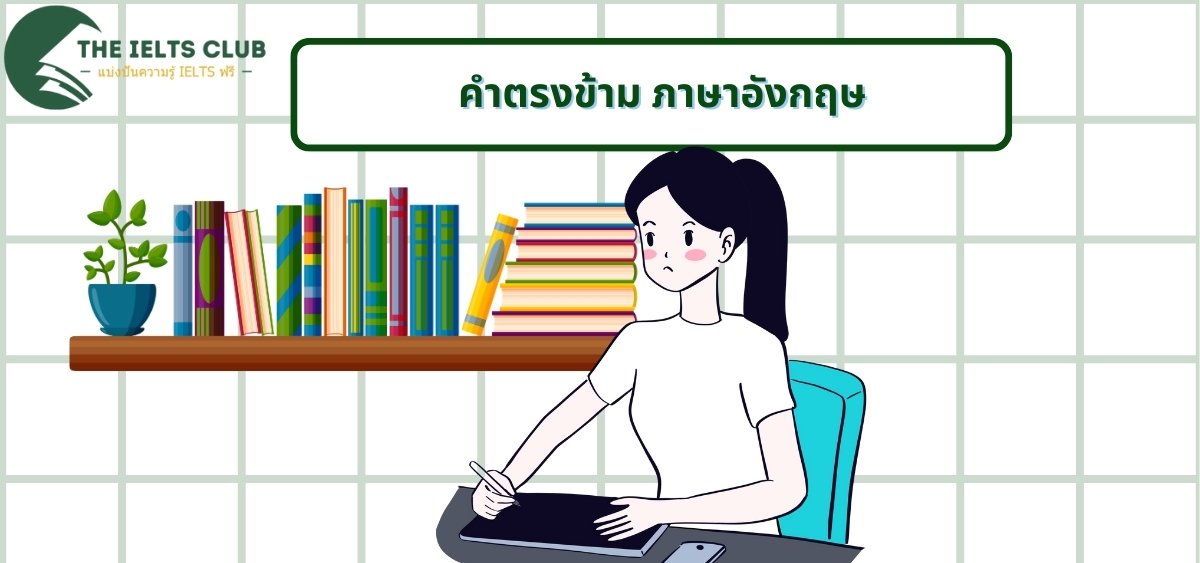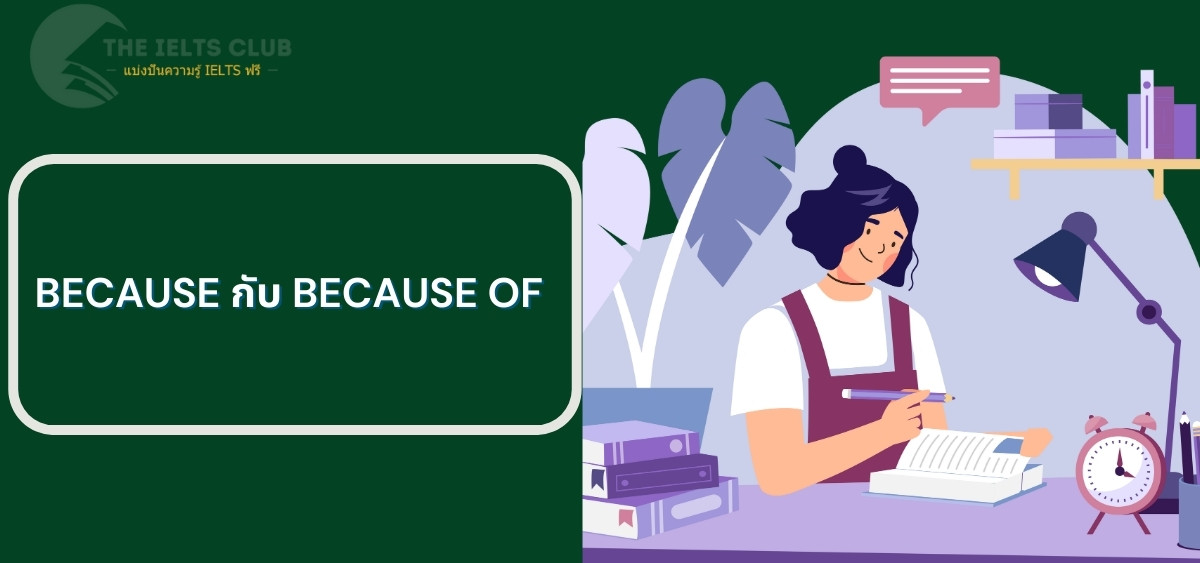การเรียนรู้คําตรงข้าม ภาษาอังกฤษ เป็นสิ่งสำคัญในการพัฒนาทักษะการสื่อสารของคุณ บทความนี้จะพาคุณไปทำความเข้าใจเกี่ยวกับคําตรงข้าม วิธีการสร้างและจำแนกประเภท พร้อมกับเทคนิคการฝึกจำและแบบฝึกหัดที่ช่วยให้คุณเก่งขึ้นในทุกวัน
I. Antonym Words คืออะไร
คำตรงข้าม ภาษาอังกฤษ หรือ Antonym Words หมายถึงคำที่มีความหมายตรงกันข้ามกัน ตัวอย่างเช่น “hot” และ “cold” ซึ่งเป็นคำตรงข้ามที่ชัดเจน การรู้และเข้าใจคำตรงข้ามช่วยให้การสื่อสารของคุณมีความชัดเจนและหลากหลายมากยิ่งขึ้น

II. วิธีการสร้างคำคู่ตรงข้ามในภาษาอังกฤษ
การสร้างคำคู่ตรงข้ามในภาษาอังกฤษเป็นวิธีที่มีประสิทธิภาพในการเพิ่มพูนพจนานุกรมและเสริมสร้างทักษะการสื่อสารของคุณ วิธีที่ง่ายที่สุดในการสร้างคำคู่ตรงข้ามคือการเติมคำนำหน้า (prefix) ไว้หน้าคำศัพท์ ซึ่งคำนำหน้าเหล่านี้จะเปลี่ยนความหมายของคำต้นให้เป็นตรงข้าม ในส่วนนี้ เราจะมาพูดถึงคำนำหน้าที่ใช้บ่อยที่สุดในการสร้างคำคู่ตรงข้าม พร้อมตัวอย่างที่ชัดเจนเพื่อให้คุณเข้าใจและสามารถนำไปใช้ได้จริง
คำนำหน้า “dis-”
คำนำหน้านี้มักใช้กับคำกริยาและคำนาม เพื่อแสดงถึงการขาดหรือการลบล้างความหมาย ตัวอย่างเช่น:
- Agree ➡ Disagree (เห็นด้วย ➡ ไม่เห็นด้วย)
- Appear ➡ Disappear (ปรากฏ ➡ หายไป)
- Connect ➡ Disconnect (เชื่อมต่อ ➡ แยกออก)
การเติม “dis-” สามารถเปลี่ยนความหมายของคำให้เป็นตรงข้ามได้อย่างชัดเจนและตรงไปตรงมา
คำนำหน้า “in-”
คำนำหน้านี้ใช้กับคำคุณศัพท์และบางครั้งกับคำนาม เพื่อแสดงความไม่หรือการขาด ตัวอย่างเช่น:
- Discreet ➡ Indiscreet (รอบคอบ ➡ ไม่รอบคอบ)
- Decent ➡ Indecent (เหมาะสม ➡ ไม่เหมาะสม)
- Visible ➡ Invisible (มองเห็นได้ ➡ มองไม่เห็น)
“in-” เป็นคำนำหน้าที่สามารถนำมาใช้กับคำหลายประเภท ทำให้มีความยืดหยุ่นในการสร้างคำคู่ตรงข้าม
คำนำหน้า “mis-”
คำนำหน้านี้ใช้กับคำกริยาเพื่อแสดงถึงการกระทำผิดหรือไม่ถูกต้อง ตัวอย่างเช่น:
- Behave ➡ Misbehave (ประพฤติดี ➡ ประพฤติไม่ดี)
- Trust ➡ Mistrust (ไว้วางใจ ➡ ไม่ไว้วางใจ)
- Understand ➡ Misunderstand (เข้าใจ ➡ เข้าใจผิด)
การเติม “mis-” ช่วยเน้นย้ำถึงการกระทำที่ผิดพลาดหรือไม่เป็นไปตามที่ควรจะเป็น
คำนำหน้า “un-”
คำนำหน้านี้เป็นหนึ่งในคำนำหน้าที่ใช้บ่อยที่สุดในภาษาอังกฤษ ใช้กับคำคุณศัพท์และคำกริยา เพื่อแสดงถึงความไม่หรือการกลับกัน ตัวอย่างเช่น:
- Fortunate ➡ Unfortunate (โชคดี ➡ โชคร้าย)
- Forgiving ➡ Unforgiving (ให้อภัย ➡ ไม่ให้อภัย)
- Known ➡ Unknown (เป็นที่รู้จัก ➡ ไม่เป็นที่รู้จัก)
“un-” มีความยืดหยุ่นสูงและสามารถนำมาใช้กับคำหลายประเภท ทำให้เป็นคำนำหน้าที่มีประโยชน์ในการสร้างคำคู่ตรงข้าม
คำนำหน้า “non-”
คำนำหน้านี้ใช้กับคำนามและบางครั้งกับคำคุณศัพท์ เพื่อแสดงถึงการไม่มีหรือการไม่เป็น ตัวอย่างเช่น:
- Sense ➡ Nonsense (ความรู้สึก/เหตุผล ➡ ไร้สาระ)
- Entity ➡ Nonentity (เอนทิตี/หน่วยงาน ➡ ไม่มีความสำคัญ)
- Profit ➡ Nonprofit (กำไร ➡ ไม่มีผลกำไร)
“non-” เป็นคำนำหน้าที่ใช้บ่อยในบริบทที่ต้องการแสดงถึงการไม่มีหรือไม่เป็นของสิ่งใดสิ่งหนึ่ง
III. การจำแนกประเภทของคำคู่ตรงข้าม

การเข้าใจประเภทต่าง ๆ ของคำคู่ตรงข้ามในภาษาอังกฤษเป็นสิ่งสำคัญที่จะช่วยให้คุณสามารถใช้คำเหล่านี้ได้อย่างถูกต้องและเหมาะสมในบริบทต่าง ๆ ในส่วนนี้ เราจะมาศึกษาการจำแนกประเภทของคำคู่ตรงข้ามในภาษาอังกฤษ ซึ่งแบ่งออกเป็นสามกลุ่มหลัก ได้แก่ คู่คำตรงข้ามที่ไม่มีโครงสร้างร่วมกัน คู่คำตรงข้ามที่ไม่มีอะไรเหมือนกันในโครงสร้าง และคู่คำตรงข้ามที่แสดงความเปรียบเทียบ
1. คู่คำตรงข้ามที่ไม่มีโครงสร้างร่วมกัน (Complementary Antonyms)
คู่คำตรงข้ามประเภทนี้คือคำที่มีความหมายตรงข้ามกันอย่างสิ้นเชิง และไม่สามารถมีค่าระหว่างกลางได้ กล่าวคือ คำหนึ่งจะต้องมีค่าเป็นจริงหรือเท็จเสมอ ตัวอย่างของคู่คำตรงข้ามประเภทนี้ ได้แก่:
- Big – Small (ใหญ่ – เล็ก): ไม่สามารถมีขนาดที่กลางระหว่างใหญ่และเล็กได้
- Off – On (ปิด – เปิด): อุปกรณ์หรือเครื่องใช้จะต้องอยู่ในสถานะเปิดหรือปิดเท่านั้น
- Night – Day (กลางคืน – กลางวัน): เวลาจะต้องเป็นกลางคืนหรือกลางวัน ไม่สามารถเป็นทั้งสองอย่างได้ในเวลาเดียวกัน
- Push – Pull (ผลัก – ดึง): การเคลื่อนไหวแบบผลักและดึงเป็นการกระทำที่ตรงข้ามกันอย่างชัดเจน
คู่คำตรงข้ามประเภทนี้ช่วยให้การสื่อสารมีความชัดเจนและไม่เกิดความสับสนในความหมายของคำที่ใช้
2. คู่คำตรงข้ามที่ไม่มีอะไรเหมือนกันในโครงสร้าง (Relational Antonyms)
คู่คำตรงข้ามประเภทนี้เป็นคำที่มีความสัมพันธ์กันในแง่ของหน้าที่หรือบทบาทในบริบทหนึ่ง ๆ โดยคำหนึ่งจะเป็นบรรทัดฐานของอีกคำหนึ่ง ตัวอย่างของคู่คำตรงข้ามประเภทนี้ ได้แก่:
- Above – Below (เหนือ – ใต้): ใช้อธิบายตำแหน่งในพื้นที่ทางกายภาพ
- Doctor – Patient (หมอ – คนไข้): แสดงถึงบทบาทในการให้บริการทางการแพทย์
- Husband – Wife (สามี – ภรรยา): ใช้ในบริบทของความสัมพันธ์ทางครอบครัว
- Give – Receive (ให้ – รับ): แสดงถึงการกระทำที่เกิดขึ้นระหว่างบุคคลสองฝ่าย
การเข้าใจคู่คำตรงข้ามประเภทนี้ช่วยให้สามารถอธิบายความสัมพันธ์และบทบาทต่าง ๆ ได้อย่างถูกต้องและชัดเจน
3. คู่คำตรงข้ามที่แสดงความเปรียบเทียบ (Graded Antonyms)
คู่คำตรงข้ามประเภทนี้เป็นคำที่มีความหมายที่สามารถวัดระดับหรือความเข้มข้นได้ ซึ่งสามารถมีค่าอยู่ระหว่างกลาง ตัวอย่างของคู่คำตรงข้ามประเภทนี้ ได้แก่:
- Hard – Easy (ยาก – ง่าย): ใช้อธิบายความยากหรือง่ายของงานหรือสถานการณ์
- Happy – Wistful (สุข – เศร้า): แสดงถึงอารมณ์ที่มีระดับความแตกต่างกัน
- Fat – Slim (อ้วน – ผอม): ใช้อธิบายลักษณะทางกายภาพที่มีความหลากหลายในระดับ
- Warm – Cool (อุ่น – เย็น): ใช้อธิบายอุณหภูมิที่สามารถมีระดับได้
คู่คำตรงข้ามประเภทนี้ช่วยให้สามารถแสดงความเปลี่ยนแปลงหรือความแตกต่างในระดับต่าง ๆ ของคุณลักษณะหรือสถานการณ์ได้อย่างละเอียดและหลากหลาย
IV. Antonym Words ที่ใช้บ่อยในชีวิตประจำวัน
การรู้จักและใช้คำคู่ตรงข้ามในชีวิตประจำวันเป็นทักษะที่สำคัญในการสื่อสารภาษาอังกฤษอย่างมีประสิทธิภาพ ด้านล่างนี้คือ 100 คู่คำตรงข้ามที่ใช้บ่อย พร้อมความหมายและตัวอย่างประโยคที่ไม่ซ้ำกับเนื้อหาที่มีอยู่บนอินเทอร์เน็ต
| คำคู่ตรงข้าม (Antonym Pairs) | ความหมาย (Meaning) | ตัวอย่างประโยค (Example) |
| Accept – Reject | ยอมรับ – ปฏิเสธ | She decided to accept the job offer. (เธอตัดสินใจยอมรับข้อเสนอทำงาน)
He chose to reject the proposal. (เขาเลือกที่จะปฏิเสธข้อเสนอ) |
| Active – Passive | กระฉับกระเฉง – ขี้เกียจ | He leads an active lifestyle. (เขามีวิถีชีวิตที่กระฉับกระเฉง)
She remained passive during the discussion. (เธอยังคงขี้เกียจในระหว่างการสนทนา) |
| Advance – Retreat | ล่วงหน้า – ถอยกลับ | The troops had to advance despite the weather. (กองทหารต้องล่วงหน้าท่ามกลางสภาพอากาศ)
The soldiers had to retreat after the attack. (ทหารต้องถอยกลับหลังการโจมตี) |
| Agree – Disagree | เห็นด้วย – ไม่เห็นด้วย | They agree on the new policy. (พวกเขาเห็นด้วยกับนโยบายใหม่)
Some team members disagree with the decision. (สมาชิกบางคนในทีมไม่เห็นด้วยกับการตัดสินใจ) |
| Alive – Dead | มีชีวิต – ตาย | The plant is still alive. (ต้นไม้นี้ยังมีชีวิตอยู่)
Unfortunately, the fish is dead. (น่าเสียดายที่ปลาตายแล้ว) |
| Always – Never | เสมอ – ไม่เคย | She always wakes up early. (เธอตื่นนอนแต่เช้าเสมอ)
He never misses a meeting. (เขาไม่เคยพลาดการประชุม) |
| Ancient – Modern | เก่าแก่ – ทันสมัย | They visited an ancient temple. (พวกเขาไปเยี่ยมชมวัดเก่าแก่)
The city skyline is filled with modern skyscrapers. (เส้นขอบฟ้าของเมืองเต็มไปด้วยตึกสูงทันสมัย) |
| Arrive – Depart | มาถึง – ออกเดินทาง | The train will arrive at 6 PM. (รถไฟจะมาถึงเวลา 18:00 น.)
Their flight will depart tomorrow morning. (เที่ยวบินของพวกเขาจะออกเดินทางในเช้าวันพรุ่งนี้) |
| Ascend – Descend | ไต่ขึ้น – ลง | The airplane began to ascend. (เครื่องบินเริ่มไต่ขึ้น)
The hiker started to descend the mountain. (นักเดินป่าเริ่มลงเขา) |
| Beautiful – Ugly | สวยงาม – น่าเกลียด | She wore a beautiful dress. (เธอสวมชุดที่สวยงาม)
The old building looks ugly after years of neglect. (อาคารเก่าดูน่าเกลียดหลังจากถูกละเลยมาหลายปี) |
| Begin – End | เริ่ม – จบ | The meeting will begin at 10 AM. (การประชุมจะเริ่มเวลา 10:00 น.)
The concert will end at midnight. (คอนเสิร์ตจะจบเวลาเที่ยงคืน) |
| Better – Worse | ดีขึ้น – แย่ลง | His condition is getting better. (สภาพของเขากำลังดีขึ้น)
The weather is getting worse each day. (สภาพอากาศแย่ลงทุกวัน) |
| Big – Small | ใหญ่ – เล็ก | They live in a big house. (พวกเขาอาศัยอยู่ในบ้านใหญ่)
She has a small car that’s easy to park. (เธอมีรถเล็กที่จอดง่าย) |
| Bitter – Sweet | ขม – หวาน | The medicine tastes bitter. (ยามีรสขม)
The dessert is sweet and delicious. (ของหวานหวานและอร่อย) |
| Black – White | ดำ – ขาว | She prefers black shoes. (เธอชอบรองเท้าสีดำ)
The walls are painted white. (ผนังถูกทาสีขาว) |
| Bless – Curse | อวยพร – สาปแช่ง | They bless their children every morning. (พวกเขาอวยพรลูก ๆ ทุกเช้า)
The storm cursed their plans. (พายุสาปแช่งแผนการของพวกเขา) |
| Borrow – Lend | ยืม – ให้ยืม | Can I borrow your pen? (ขอยืมปากกาของคุณได้ไหม?)
She decided to lend her book to a friend. (เธอตัดสินใจให้ยืมหนังสือของเธอให้เพื่อน) |
| Brave – Cowardly | กล้าหาญ – ขี้ขลาด | The firefighter was very brave. (นักดับเพลิงกล้าหาญมาก)
The cowardly cat hid under the bed. (แมวขี้ขลาดซ่อนอยู่ใต้เตียง) |
| Bright – Dim | สว่าง – มืด | The room is bright with sunlight. (ห้องสว่างด้วยแสงแดด)
The light is too dim to read by. (แสงมืดเกินไปที่จะอ่านหนังสือได้) |
| Build – Destroy | สร้าง – ทำลาย | They plan to build a new bridge. (พวกเขาวางแผนที่จะสร้างสะพานใหม่)
The demolition team will destroy the old building. (ทีมรื้อถอนจะทำลายอาคารเก่า) |
| Calm – Agitated | เงียบสงบ – คึกคัก | She remained calm during the storm. (เธอเงียบสงบในช่วงพายุ)
He felt agitated after the long meeting. (เขารู้สึกคึกคักหลังการประชุมยาว) |
| Cheap – Expensive | ถูก – แพง | This watch is too cheap. (นาฬิกานี้ถูกเกินไป)
That handbag is very expensive. (กระเป๋านั้นแพงมาก) |
| Child – Adult | เด็ก – ผู้ใหญ่ | The park is safe for children. (สวนสนุกปลอดภัยสำหรับเด็ก ๆ)
Adults are required to show ID. (ผู้ใหญ่จำเป็นต้องแสดงบัตรประชาชน) |
| Clean – Dirty | สะอาด – สกปรก | Please keep your room clean. (กรุณารักษาห้องของคุณให้สะอาด)
The kitchen was dirty after cooking. (ห้องครัวสกปรกหลังการทำอาหาร) |
| Close – Open | ปิด – เปิด | Please close the door. (กรุณาปิดประตู)
They decided to open a new store downtown. (พวกเขาตัดสินใจเปิดร้านใหม่ในใจกลางเมือง) |
| Cold – Hot | หนาว – ร้อน | It’s cold outside today. (วันนี้อากาศหนาวนอกบ้าน)
She prefers hot tea over cold drinks. (เธอชอบชาร้อนมากกว่าผลิตภัณฑ์เย็น) |
| Comfortable – Uncomfortable | สะดวกสบาย – ไม่สะดวกสบาย | This chair is very comfortable. (เก้าอี้นี้สะดวกสบายมาก)
The shoes are uncomfortable to wear all day. (รองเท้าไม่สะดวกสบายในการใส่ตลอดวัน) |
| Common – Rare | ทั่วไป – หายาก | It’s common to see birds here. (เห็นนกทั่วไปที่นี่)
Rare gemstones are valuable. (อัญมณีหายากมีค่ามาก) |
| Complex – Simple | ซับซ้อน – เรียบง่าย | The problem is more complex than we thought. (ปัญหานี้ซับซ้อนกว่าที่เราคิด)
The instructions are simple to follow. (คำแนะนำง่ายต่อการติดตาม) |
| Connect – Disconnect | เชื่อมต่อ – ตัดการเชื่อมต่อ | Please connect the cables properly. (กรุณาเชื่อมต่อสายให้ถูกต้อง)
He had to disconnect his phone from the charger. (เขาต้องตัดการเชื่อมต่อโทรศัพท์จากที่ชาร์จ) |
| Continuous – Intermittent | ต่อเนื่อง – เป็นครั้งคราว | The rain was continuous all day. (ฝนตกต่อเนื่องทั้งวัน)
The signal was intermittent during the storm. (สัญญาณเป็นครั้งคราวในช่วงพายุ) |
| Cool – Warm | เย็น – อุ่น | She likes her drinks cool. (เธอชอบเครื่องดื่มที่เย็น)
The blanket kept her warm during the night. (ผ้าห่มทำให้เธออุ่นในตอนกลางคืน) |
| Correct – Incorrect | ถูกต้อง – ผิดพลาด | Your answer is correct. (คำตอบของคุณถูกต้อง)
The information provided was incorrect. (ข้อมูลที่ให้มาผิดพลาด) |
| Courageous – Timid | กล้าหาญ – ขี้ขลาด | The lion is a courageous animal. (สิงโตเป็นสัตว์ที่กล้าหาญ)
The timid mouse hid from the cat. (หนูขี้ขลาดซ่อนจากแมว) |
| Create – Destroy | สร้าง – ทำลาย | Artists create beautiful works. (ศิลปินสร้างงานที่สวยงาม)
The hurricane will destroy the coastal town. (พายุเฮอริเคนจะทำลายเมืองชายฝั่ง) |
| Dark – Light | มืด – สว่าง | The room is dark without the lights on. (ห้องมืดถ้าไม่เปิดไฟ)
The light from the window brightened the room. (แสงจากหน้าต่างทำให้ห้องสว่างขึ้น) |
| Day – Night | กลางวัน – กลางคืน | They work during the day and rest at night. (พวกเขาทำงานในเวลากลางวันและพักผ่อนตอนกลางคืน)
The city looks different at night. (เมืองดูแตกต่างในตอนกลางคืน) |
| Deep – Shallow | ลึก – ตื้น | The lake is very deep. (ทะเลสาบนี้ลึกมาก)
The water is shallow near the shore. (น้ำตื้นใกล้ฝั่ง) |
| Defend – Attack | ป้องกัน – โจมตี | The army will defend the country. (กองทัพจะป้องกันประเทศ)
The soldiers were ordered to attack at dawn. (ทหารได้รับคำสั่งให้โจมตีเมื่อรุ่งอรุณ) |
| Delicious – Disgusting | อร่อย – น่าเกลียด | This cake is delicious. (เค้กนี้อร่อยมาก)
The spoiled food tasted disgusting. (อาหารที่เน่าเสียมีรสชาติที่น่าเกลียด) |
| Despair – Hope | สิ้นหวัง – มีความหวัง | She held onto hope despite the challenges. (เธอยึดมั่นในความหวังท่ามกลางอุปสรรค)
In times of despair, it’s important to stay hopeful. (ในช่วงเวลาที่สิ้นหวัง มันสำคัญที่จะยังคงมีความหวัง) |
| Different – Same | แตกต่าง – เหมือนกัน | Their opinions are different. (ความคิดเห็นของพวกเขาแตกต่างกัน)
Despite being siblings, they have the same sense of humor. (แม้ว่าจะเป็นพี่น้อง พวกเขาก็มีอารมณ์ขันเหมือนกัน) |
| Difficult – Easy | ยาก – ง่าย | This puzzle is difficult to solve. (ปริศนานี้ยากที่จะแก้)
The exam was surprisingly easy. (การสอบนั้นง่ายเกินคาด) |
| Diligent – Lazy | ขยัน – ขี้เกียจ | She is very diligent in her studies. (เธอขยันมากในการเรียน)
The lazy cat slept all day. (แมวขี้เกียจนอนตลอดทั้งวัน) |
| Direct – Indirect | ตรงไปตรงมา – อ้อมค้อม | He gave a direct answer. (เขาตอบคำถามอย่างตรงไปตรงมา)
She took an indirect route to avoid traffic. (เธอเลือกเส้นทางอ้อมเพื่อหลีกเลี่ยงการจราจร) |
| Dry – Wet | แห้ง – เปียก | The clothes are dry now. (เสื้อผ้าแห้งแล้วตอนนี้)
After the rain, the ground was wet. (หลังฝนตก พื้นดินเปียก) |
| Early – Late | เช้า – ช้า | She arrived early for the meeting. (เธอมาถึงประชุมแต่เช้า)
He was late to the appointment. (เขามาสายสำหรับนัดหมาย) |
| Easy – Hard | ง่าย – ยาก | Learning a new language can be easy with practice. (การเรียนรู้ภาษาใหม่อาจจะง่ายถ้ามีการฝึกฝน)
The marathon is hard but rewarding. (การแข่งขันมาราธอนยากแต่ให้รางวัลที่ดี) |
| Empty – Full | ว่างเปล่า – เต็ม | The glass is empty. (แก้วว่างเปล่า)
The stadium was full of cheering fans. (สนามกีฬามีแฟนๆ ร้องเชียร์เต็มที่) |
| End – Begin | จบ – เริ่ม | The concert will end at midnight. (คอนเสิร์ตจะจบเวลาเที่ยงคืน)
Let’s begin the project today. (เรามาเริ่มโปรเจกต์กันวันนี้กันเถอะ) |
| Enter – Exit | เข้าสู่ – ออกจาก | Please enter your password. (กรุณาใส่รหัสผ่านของคุณ)
You can exit the building through the back door. (คุณสามารถออกจากอาคารผ่านประตูหลัง) |
| Even – Odd | คู่ – คี่ | Four is an even number. (สี่เป็นเลขคู่)
Seven is an odd number. (เจ็ดเป็นเลขคี่) |
| Excite – Bore | ตื่นเต้น – น่าเบื่อ | The movie was exciting. (หนังน่าตื่นเต้น)
The lecture was boring and lengthy. (การบรรยายน่าเบื่อและยาวนาน) |
| Expand – Contract | ขยาย – หดตัว | The company plans to expand its operations. (บริษัทวางแผนที่จะขยายการดำเนินงาน)
The muscle contracts during exercise. (กล้ามเนื้อหดตัวระหว่างการออกกำลังกาย) |
| Fail – Succeed | ล้มเหลว – ประสบความสำเร็จ | She worked hard to succeed. (เธอทำงานหนักเพื่อประสบความสำเร็จ)
Despite his efforts, he failed the test. (แม้จะพยายาม เขาก็ล้มเหลวในการสอบ) |
| False – True | เท็จ – จริง | His statement was false. (คำกล่าวของเขาเป็นเท็จ)
The witness gave a true account of the events. (พยานให้บัญชีจริงของเหตุการณ์) |
| Famous – Unknown | มีชื่อเสียง – ไม่เป็นที่รู้จัก | The actor is very famous. (นักแสดงคนนั้นมีชื่อเสียงมาก)
She remains unknown despite her talent. (เธอยังคงไม่เป็นที่รู้จักแม้จะมีพรสวรรค์) |
| Far – Near | ไกล – ใกล้ | Their house is far from the city. (บ้านของพวกเขาอยู่ไกลจากเมือง)
The school is near my home. (โรงเรียนใกล้บ้านฉัน) |
| Fast – Slow | เร็ว – ช้า | The car is very fast. (รถยนต์นี้เร็วมาก)
The old computer operates slowly. (คอมพิวเตอร์เก่าทำงานช้า) |
| Fat – Slim | อ้วน – ผอม | He is trying to lose fat. (เขาพยายามลดน้ำหนัก)
She maintains a slim figure through exercise. (เธอรักษารูปร่างผอมเพรียวผ่านการออกกำลังกาย) |
| Few – Many | น้อย – มาก | There are few apples left. (มีแอปเปิ้ลเหลือน้อย)
Many people attended the concert. (มีคนมากมายเข้าร่วมคอนเสิร์ต) |
| Final – Initial | สุดท้าย – เริ่มต้น | This is the final round of the competition. (นี่คือรอบสุดท้ายของการแข่งขัน)
We reviewed the initial plans before proceeding. (เราตรวจสอบแผนเริ่มต้นก่อนที่จะดำเนินการต่อ) |
| Find – Lose | หาเจอ – สูญเสีย | I hope to find my keys soon. (ฉันหวังว่าจะหาเจอกุญแจของฉันเร็ว ๆ นี้)
She didn’t want to lose her favorite book. (เธอไม่ต้องการสูญเสียหนังสือโปรดของเธอ) |
| Finish – Start | จบ – เริ่ม | Let’s finish the project today. (เรามาจบโปรเจกต์วันนี้กันเถอะ)
It’s time to start a new chapter in your life. (ถึงเวลาที่จะเริ่มต้นบทใหม่ในชีวิตของคุณ) |
| First – Last | แรก – สุดท้าย | She was the first to arrive. (เธอเป็นคนแรกมาถึง)
He was the last to leave the office. (เขาเป็นคนสุดท้ายที่ออกจากสำนักงาน) |
| Flat – Hilly | ราบ – ภูเขา | The landscape is mostly flat. (ภูมิประเทศส่วนใหญ่เป็นราบ)
They enjoyed hiking in the hilly region. (พวกเขาชื่นชอบการเดินป่าในภูมิภาคที่มีภูเขา) |
| Flexible – Rigid | ยืดหยุ่น – แข็งกระด้าง | Her schedule is very flexible. (ตารางของเธอยืดหยุ่นมาก)
The rules are too rigid for creative projects. (กฎเกณฑ์นั้นแข็งกระด้างเกินไปสำหรับโปรเจกต์ที่สร้างสรรค์) |
| Forget – Remember | ลืม – จำ | Don’t forget to lock the door. (อย่าลืมล็อคประตู)
Please remember to call your mother. (กรุณาจำไว้ที่จะโทรหามารดาของคุณ) |
| Forgive – Blame | ให้อภัย – โทษ | It’s hard to forgive him. (มันยากที่จะให้อภัยเขา)
She tends to blame others for her mistakes. (เธอมักโทษผู้อื่นสำหรับความผิดพลาดของเธอ) |
| Free – Busy | ว่าง – ไม่ว่าง | I’m free this afternoon. (ฉันว่างตอนบ่ายนี้)
He is always busy with work. (เขามักจะไม่ว่างเพราะงาน) |
| Friend – Enemy | เพื่อน – ศัตรู | He considers her a true friend. (เขามองว่าเธอเป็นเพื่อนแท้)
In the story, the hero faces many enemies. (ในเรื่องราว ตัวเอกต้องเผชิญกับศัตรูหลายคน) |
| Full – Empty | เต็ม – ว่างเปล่า | The room was full of people. (ห้องเต็มไปด้วยคน)
The bottle is empty after the hike. (ขวดว่างหลังจากการเดินทาง) |
| Funny – Serious | ตลก – จริงจัง | He told a funny joke. (เขาบอกมุขตลก)
The meeting took a serious turn. (การประชุมกลายเป็นเรื่องจริงจัง) |
| Generous – Stingy | ใจกว้าง – ขี้เหนียว | She is very generous with her time. (เธอใจกว้างมากกับเวลาของเธอ)
He is too stingy to share his snacks. (เขาขี้เหนียวเกินไปที่จะแบ่งขนมของเขา) |
| Gentle – Harsh | อ่อนโยน – โหดร้าย | The teacher has a gentle demeanor. (คุณครูมีท่าทางอ่อนโยน)
The harsh criticism hurt his feelings. (คำวิจารณ์โหดร้ายทำร้ายความรู้สึกของเขา) |
| Give – Take | ให้ – รับ | She decided to give her old clothes away. (เธอตัดสินใจให้ยืมเสื้อผ้าเก่าของเธอไป)
He will take the package tomorrow. (เขาจะรับพัสดุพรุ่งนี้) |
| Good – Bad | ดี – แย่ | She did a good job on the assignment. (เธอทำงานนั้นได้ดี)
The weather is bad today. (อากาศวันนี้แย่มาก) |
| Gorgeous – Ugly | สวยงาม – น่าเกลียด | The sunset was absolutely gorgeous. (พระอาทิตย์ตกดินสวยงามอย่างยิ่ง)
The old car looks ugly next to the new models. (รถเก่าดูน่าเกลียดเมื่อเทียบกับรุ่นใหม่) |
| Graceful – Clumsy | อ่อนโยน – ขี้อาย | The dancer moved gracefully across the stage. (นักเต้นเคลื่อนไหวอย่างอ่อนโยนบนเวที)
His clumsy movements caused him to trip. (การเคลื่อนไหวขี้อายทำให้เขาหกล้ม) |
| Great – Terrible | ยิ่งใหญ่ – น่าเกลียด | The concert was great last night. (คอนเสิร์ตเมื่อคืนนี้ยอดเยี่ยมมาก)
The food at the new restaurant was terrible. (อาหารที่ร้านใหม่แย่มาก) |
| Grow – Shrink | เติบโต – หดตัว | Plants grow towards the sunlight. (พืชเติบโตไปทางแสงแดด)
The company’s profits began to shrink last quarter. (กำไรของบริษัทเริ่มหดตัวในไตรมาสที่แล้ว) |
| Happy – Sad | สุข – เศร้า | She felt happy after the celebration. (เธอรู้สึกสุขหลังจากการเฉลิมฉลอง)
He was sad to see his friend leave. (เขารู้สึกเศร้าเมื่อเห็นเพื่อนของเขาไป) |
| Hard – Soft | แข็ง – นุ่ม | The mattress is too hard for me. (ที่นอนนี้แข็งเกินไปสำหรับฉัน)
The pillow is very soft and comfortable. (หมอนนุ่มและสะดวกสบายมาก) |
| Healthy – Sick | สุขภาพดี – ป่วย | Eating vegetables keeps you healthy. (การกินผักทำให้คุณมีสุขภาพดี)
She was sick and couldn’t attend the meeting. (เธอป่วยและไม่สามารถเข้าร่วมการประชุมได้) |
| Heavy – Light | หนัก – เบา | This box is too heavy to lift. (กล่องนี้หนักเกินกว่าจะยกขึ้นได้)
The fabric is light and breathable. (ผ้านี้เบาและระบายอากาศได้ดี) |
| High – Low | สูง – ต่ำ | The mountain is very high. (ภูเขานี้สูงมาก)
The basement is low and dark. (ชั้นใต้ดินต่ำและมืด) |
| Historic – Modern | ประวัติศาสตร์ – ทันสมัย | They visited a historic battlefield. (พวกเขาไปเยี่ยมชมสนามรบประวัติศาสตร์)
The city center is filled with modern architecture. (ใจกลางเมืองเต็มไปด้วยสถาปัตยกรรมทันสมัย) |
| Honest – Dishonest | ซื่อสัตย์ – ไม่ซื่อสัตย์ | He is known to be honest in his dealings. (เขามีชื่อเสียงว่าเป็นคนซื่อสัตย์ในการทำธุรกิจ)
The dishonest salesman tricked the customers. (พนักงานขายไม่ซื่อสัตย์หลอกลูกค้า) |
| Hot – Cold | ร้อน – หนาว | She prefers hot tea over cold drinks. (เธอชอบชาร้อนมากกว่าผลิตภัณฑ์เย็น)
The cold wind made everyone shiver. (ลมหนาวทำให้ทุกคนสั่น) |
| Huge – Tiny | ใหญ่โต – เล็กมาก | The elephant is a huge animal. (ช้างเป็นสัตว์ที่ใหญ่โต)
The tiny kitten curled up in her lap. (ลูกแมวเล็กนุ่มนิ่มงออยู่บนตักของเธอ) |
| Humid – Dry | ร้อนชื้น – แห้ง | The climate here is very humid. (ภูมิอากาศที่นี่ร้อนชื้นมาก)
The desert is known for its dry conditions. (ทะเลทรายมีชื่อเสียงเรื่องสภาพแห้ง) |
| Hungry – Full | หิว – อิ่ม | I’m hungry after the workout. (ฉันหิวหลังจากออกกำลังกาย)
She felt full after the delicious meal. (เธอรู้สึกอิ่มหลังอาหารมื้ออร่อย) |
| Include – Exclude | รวม – ไม่รวม | Please include all the necessary documents. (กรุณารวมเอกสารที่จำเป็นทั้งหมด)
They decided to exclude him from the team. (พวกเขาตัดสินใจไม่รวมเขาในทีม) |
| Increase – Decrease | เพิ่มขึ้น – ลดลง | They plan to increase production next year. (พวกเขาวางแผนที่จะเพิ่มการผลิตในปีหน้า)
The company needs to decrease expenses. (บริษัทต้องลดค่าใช้จ่าย) |
| Inside – Outside | ข้างใน – ข้างนอก | Let’s go outside and enjoy the weather. (ไปข้างนอกและสนุกกับสภาพอากาศกันเถอะ)
She prefers to stay inside during the rain. (เธอชอบอยู่ข้างในตอนฝนตก) |
| Intelligent – Stupid | ฉลาด – โง่ | She is very intelligent and quick to learn. (เธอฉลาดมากและเรียนรู้ได้รวดเร็ว)
The answer was stupid and irrelevant. (คำตอบนั้นโง่และไม่เกี่ยวข้อง) |
| Interesting – Boring | น่าสนใจ – น่าเบื่อ | The book is very interesting. (หนังสือเล่มนี้น่าสนใจมาก)
The lecture was boring and lengthy. (การบรรยายน่าเบื่อและยาวนาน) |
| Join – Separate | เข้าร่วม – แยกออก | They decided to join the club. (พวกเขาตัดสินใจเข้าร่วมสโมสร)
The company decided to separate the departments. (บริษัทตัดสินใจแยกแผนกต่าง ๆ) |
| Joy – Sorrow | ความสุข – ความเศร้า | Her face showed pure joy. (ใบหน้าของเธอแสดงถึงความสุขบริสุทธิ์)
He felt sorrow after hearing the news. (เขารู้สึกเศร้าหลังจากได้ยินข่าว) |
| Kind – Cruel | อ่อนโยน – โหดร้าย | She is kind to everyone she meets. (เธออ่อนโยนกับทุกคนที่เธอพบเจอ)
The cruel teacher punished the students harshly. (คุณครูโหดร้ายลงโทษนักเรียนอย่างรุนแรง) |
| Knowledge – Ignorance | ความรู้ – ความไม่รู้ | Education helps overcome ignorance. (การศึกษา ช่วยขจัดความไม่รู้)
Ignorance can lead to misunderstandings. (ความไม่รู้สามารถนำไปสู่การเข้าใจผิด) |
| Large – Small | ใหญ่ – เล็ก | They bought a large house in the suburbs. (พวกเขาซื้อบ้านใหญ่ในชานเมือง)
She has a small backpack for her daily use. (เธอมีกระเป๋าเป้เล็กสำหรับการใช้งานประจำวัน) |
| Last – First | สุดท้าย – แรก | He was the last to finish the race. (เขาเป็นคนสุดท้ายที่เสร็จการแข่งขัน)
She was the first to arrive at the party. (เธอเป็นคนแรกมาถึงงานปาร์ตี้) |
| Lazy – Industrious | ขี้เกียจ – ขยันขันแข็ง | She became more industrious after the new year. (เธอกลายเป็นขยันขันแข็งมากขึ้นหลังจากปีใหม่)
The lazy dog slept all day. (หมาขี้เกียจนอนตลอดทั้งวัน) |
| Left – Right | ซ้าย – ขวา | Turn left at the next intersection. (เลี้ยวซ้ายที่สี่แยกถัดไป)
She turned right to reach the cafe. (เธอเลี้ยวขวาเพื่อไปถึงร้านกาแฟ) |
| Less – More | น้อยกว่า – มากกว่า | She needs more time to complete the project. (เธอต้องการเวลามากขึ้นในการทำโปรเจกต์ให้เสร็จ)
He has less interest in sports now. (เขามีความสนใจในกีฬาน้อยลงตอนนี้) |
| Light – Dark | สว่าง – มืด | The room is filled with light during the day. (ห้องเต็มไปด้วยแสงสว่างในเวลากลางวัน)
It gets dark early in the winter. (มันมืดเร็วในฤดูหนาว) |
| Like – Dislike | ชอบ – ไม่ชอบ | I like to read books in my free time. (ฉันชอบอ่านหนังสือในเวลาว่าง)
She dislikes loud noises. (เธอไม่ชอบเสียงดัง) |
| Little – Big | เล็ก – ใหญ่ | They have a little dog at home. (พวกเขามีสุนัขตัวเล็กที่บ้าน)
The big elephant walked slowly. (ช้างใหญ่เดินช้า ๆ) |
| Long – Short | ยาว – สั้น | She has long hair. (เธอมีผมยาว)
The meeting was short and efficient. (การประชุมสั้นและมีประสิทธิภาพ) |
| Loose – Tight | หลวม – แน่น | The knot is too loose. (โบว์พันพันมากเกินไป)
The screws are too tight and need loosening. (สกรูแน่นเกินไปและต้องคลาย) |
| Lose – Win | สูญเสีย – ชนะ | They hope to win the championship. (พวกเขามุ่งมั่นที่จะชนะแชมป์)
He didn’t want to lose the game. (เขาไม่ต้องการแพ้เกม) |
| Low – High | ต่ำ – สูง | The prices are low this week. (ราคาต่ำในสัปดาห์นี้)
The airplane flew high above the clouds. (เครื่องบินบินสูงเหนือเมฆ) |
| Male – Female | ชาย – หญิง | The study included both male and female participants. (การศึกษารวมถึงผู้เข้าร่วมทั้งชายและหญิง)
The female athlete won the race. (นักกีฬาหญิงชนะการแข่งขัน) |
| Major – Minor | หลัก – รอง | She chose a major in biology. (เธอเลือกวิชาเอกด้านชีววิทยา)
He played a minor role in the play. (เขาเล่นบทรองในละคร) |
| Majority – Minority | ส่วนใหญ่ – ส่วนน้อย | The majority voted in favor of the proposal. (ส่วนใหญ่ลงคะแนนเสียงสนับสนุนข้อเสนอ)
The minority expressed their concerns. (ส่วนน้อยแสดงความกังวลของพวกเขา) |
| Many – Few | มาก – น้อย | There are many stars in the sky. (มีดาวมากมายในท้องฟ้า)
Only a few students passed the exam. (มีนักเรียนเพียงไม่กี่คนที่ผ่านการสอบ) |
| Married – Single | แต่งงานแล้ว – โสด | She is happily married. (เธอแต่งงานแล้วอย่างมีความสุข)
He remains single despite his friends’ advice. (เขายังคงโสดแม้จะได้รับคำแนะนำจากเพื่อน) |
| Massive – Tiny | ใหญ่โต – เล็กมาก | The elephant is a massive animal. (ช้างเป็นสัตว์ที่ใหญ่โต)
The tiny insect crawled on the leaf. (แมลงเล็กน้อยคันบนใบไม้) |
| Mature – Immature | เติบโตเต็มที่ – ไม่โตเต็มที่ | He is very mature for his age. (เขาโตเต็มที่มากสำหรับวัยของเขา)
The immature behavior disappointed her parents. (พฤติกรรมไม่โตเต็มที่ทำให้พ่อแม่ของเธอผิดหวัง) |
| Maximum – Minimum | สูงสุด – ต่ำสุด | The temperature reached its maximum today. (อุณหภูมิถึงจุดสูงสุดในวันนี้)
The minimum wage has increased this year. (ค่าแรงขั้นต่ำเพิ่มขึ้นในปีนี้) |
| Mean – Generous | เฉยเมย – ใจกว้าง | He was mean to his classmates. (เขาเฉยเมยต่อเพื่อนร่วมชั้น)
She is generous with her time and resources. (เธอใจกว้างกับเวลาและทรัพยากรของเธอ) |
| Mistake – Correct | ผิดพลาด – ถูกต้อง | Everyone makes mistakes sometimes. (ทุกคนบางครั้งก็ทำผิดพลาด)
Make sure your answer is correct. (ตรวจสอบให้แน่ใจว่าคำตอบของคุณถูกต้อง) |
| Modern – Ancient | ทันสมัย – โบราณ | They visited a modern art museum. (พวกเขาเยี่ยมชมพิพิธภัณฑ์ศิลปะทันสมัย)
The ancient ruins attracted many tourists. (ซากโบราณดึงดูดนักท่องเที่ยวมากมาย) |
| Month – Year | เดือน – ปี | She plans to travel next year. (เธอวางแผนที่จะเดินทางในปีหน้า)
The project will be completed in a month. (โปรเจกต์จะเสร็จภายในหนึ่งเดือน) |
| More – Less | มากกว่า – น้อยกว่า | He needs more practice to improve. (เขาต้องการฝึกฝนมากขึ้นเพื่อพัฒนา)
She has less interest in the topic now. (เธอมีความสนใจในหัวข้อที่น้อยลงตอนนี้) |
| Morning – Evening | เช้า – เย็น | She likes to jog in the morning. (เธอชอบวิ่งตอนเช้า)
They enjoy watching movies in the evening. (พวกเขาชอบดูหนังตอนเย็น) |
| Near – Far | ใกล้ – ไกล | Their house is near the school. (บ้านของพวกเขาใกล้โรงเรียน)
The beach is far from the city center. (ชายหาดอยู่ไกลจากใจกลางเมือง) |
| Neat – Messy | เรียบร้อย – ยุ่งเหยิง | Her desk is always neat. (โต๊ะของเธอเรียบร้อยเสมอ)
His room is messy with clothes everywhere. (ห้องของเขายุ่งเหยิงไปด้วยเสื้อผ้าทั่วทุกที่) |
| Negative – Positive | ลบ – บวก | He has a positive attitude towards life. (เขามีทัศนคติเชิงบวกต่อชีวิต)
The negative feedback discouraged her. (คำติชมเชิงลบทำให้เธอท้อแท้) |
| Never – Always | ไม่เคย – เสมอ | She never eats junk food. (เธอไม่เคยกินอาหารขยะ)
He always arrives on time. (เขามาถึงเวลาเสมอ) |
| New – Old | ใหม่ – เก่า | They bought a new car last week. (พวกเขาซื้อรถใหม่เมื่อสัปดาห์ที่แล้ว)
She prefers old books to new ones. (เธอชอบหนังสือเก่ากว่าหนังสือใหม่) |
| Noisy – Quiet | เสียงดัง – เงียบ | The classroom is too noisy today. (ห้องเรียนเสียงดังเกินไปในวันนี้)
The library is a quiet place to study. (ห้องสมุดเป็นสถานที่เงียบสงบสำหรับการเรียน) |
| Normal – Strange | ปกติ – แปลก | It’s normal to feel nervous before a test. (มันปกติที่จะรู้สึกประหม่าก่อนการสอบ)
The new student has a strange accent. (นักเรียนใหม่มีสำเนียงแปลก) |
| Nothing – Something | ไม่มีอะไร – มีอะไรบางอย่าง | There is nothing in the fridge. (ไม่มีอะไรในตู้เย็น)
She found something interesting in the box. (เธอพบอะไรบางอย่างที่น่าสนใจในกล่อง) |
| Notice – Ignore | สังเกต – ไม่สนใจ | She noticed the beautiful painting. (เธอสังเกตเห็นภาพวาดที่สวยงาม)
He decided to ignore the warnings. (เขาตัดสินใจไม่สนใจคำเตือน) |
| Obey – Rebel | เชื่อฟัง – ตะกรัน | Children should obey their parents. (เด็ก ๆ ควรเชื่อฟังพ่อแม่ของพวกเขา)
Teenagers often rebel against authority. (วัยรุ่นมักตะกรันต่อต้านอำนาจ) |
| Obvious – Hidden | ชัดเจน – ซ่อนอยู่ | The answer was obvious to everyone. (คำตอบนั้นชัดเจนสำหรับทุกคน)
The treasure was hidden in the cave. (สมบัติลับอยู่ในถ้ำ) |
| Open – Closed | เปิด – ปิด | The store is open until 9 PM. (ร้านเปิดจนถึงเวลา 21:00 น.)
Please close the window before you leave. (กรุณาปิดหน้าต่างก่อนที่คุณจะออกไป) |
| Optimistic – Pessimistic | มองโลกในแง่ดี – มองโลกในแง่ร้าย | She remains optimistic about the future. (เธอยังคงมองโลกในแง่ดีเกี่ยวกับอนาคต)
His pessimistic view makes him hesitant. (มุมมองเชิงลบทำให้เขาลังเล) |
| Order – Chaos | การสั่งการ – ความวุ่นวาย | The library was in perfect order. (ห้องสมุดอยู่ในระเบียบเรียบร้อย)
The room descended into chaos after the announcement. (ห้องกลายเป็นความวุ่นวายหลังจากการประกาศ) |
| Out – In | ข้างนอก – ข้างใน | Let’s go out for dinner tonight. (ไปทานอาหารเย็นข้างนอกคืนนี้กันเถอะ)
She prefers to stay in on weekends. (เธอชอบอยู่ข้างในในช่วงวันหยุดสุดสัปดาห์) |
| Outside – Inside | ข้างนอก – ข้างใน | It’s cold outside today. (วันนี้อากาศหนาวข้างนอก)
The children are playing inside the house. (เด็ก ๆ กำลังเล่นอยู่ข้างในบ้าน) |
| Over – Under | เหนือ – ใต้ | The picture is hanging over the fireplace. (รูปภาพถูกแขวนเหนือเตาผิง)
The cat is hiding under the table. (แมวกำลังซ่อนอยู่ใต้โต๊ะ) |
| Partial – Complete | ส่วนหนึ่ง – สมบูรณ์ | The project is only partially finished. (โปรเจกต์ยังเสร็จเพียงบางส่วน)
They achieved a complete victory in the match. (พวกเขาได้รับชัยชนะสมบูรณ์ในการแข่งขัน) |
| Pass – Fail | ผ่าน – ล้มเหลว | She hopes to pass all her exams. (เธอหวังว่าจะผ่านการสอบทั้งหมด)
Unfortunately, he failed the driving test. (น่าเสียดายที่เขาล้มเหลวในการทดสอบขับรถ) |
| Peace – War | สันติภาพ – สงคราม | They prayed for peace in the world. (พวกเขาสวดมนต์ขอให้มีสันติภาพในโลก)
The country was torn apart by war. (ประเทศถูกทำลายด้วยสงคราม) |
| Perfect – Imperfect | สมบูรณ์แบบ – ไม่สมบูรณ์ | No one is perfect. (ไม่มีใครสมบูรณ์แบบ)
The vase is imperfect with a small crack. (แจกันไม่สมบูรณ์ด้วยรอยแตกเล็กน้อย) |
| Permanent – Temporary | ถาวร – ชั่วคราว | They signed a permanent contract. (พวกเขาเซ็นสัญญาถาวร)
The tattoo is temporary and will fade over time. (สักชั่วคราวและจะจางลงตามกาลเวลา) |
| Permit – Forbid | อนุญาต – ห้าม | Smoking is forbidden in this area. (ห้ามสูบบุหรี่ในพื้นที่นี้)
They permit visitors to enter the museum on weekends. (พวกเขาอนุญาตให้ผู้เยี่ยมชมเข้าชมพิพิธภัณฑ์ในช่วงวันหยุดสุดสัปดาห์) |
| Poor – Rich | จน – รวย | He grew up in a poor neighborhood. (เขาเติบโตมาในย่านที่ยากจน)
She became rich after her successful business venture. (เธอร่ำรวยหลังจากการทำธุรกิจที่ประสบความสำเร็จ) |
| Popular – Unpopular | ยอดนิยม – ไม่เป็นที่นิยม | The new song is very popular. (เพลงใหม่นี้ได้รับความนิยมมาก)
His unpopular decisions caused dissent among the team. (การตัดสินใจที่ไม่เป็นที่นิยมของเขาทำให้เกิดความไม่พอใจในทีม) |
| Positive – Negative | เชิงบวก – เชิงลบ | She gave a positive response to the idea. (เธอให้การตอบรับเชิงบวกกับความคิดนั้น)
His negative attitude affects the entire team. (ทัศนคติเชิงลบของเขามีผลกระทบต่อทีมทั้งหมด) |
| Possible – Impossible | เป็นไปได้ – เป็นไปไม่ได้ | It’s possible to learn a new language with dedication. (เป็นไปได้ที่จะเรียนรู้ภาษาใหม่ด้วยความทุ่มเท)
Climbing Mount Everest is impossible without proper training. (การปีนภูเขาเอเวอเรสต์เป็นไปไม่ได้ถ้าไม่มีการฝึกฝนที่เหมาะสม) |
| Powerful – Weak | แข็งแกร่ง – อ่อนแอ | The engine is powerful enough for the car. (เครื่องยนต์มีความแข็งแกร่งพอสำหรับรถยนต์)
The old bridge is weak and needs repairs. (สะพานเก่ามีความอ่อนแอและต้องการการซ่อมแซม) |
| Practical – Impractical | ใช้ได้จริง – ไม่ใช่จริงจัง | Her ideas are very practical. (ไอเดียของเธอใช้ได้จริงมาก)
The plan is impractical and unlikely to succeed. (แผนนี้ไม่ใช่จริงจังและไม่น่าจะประสบความสำเร็จ) |
| Present – Absent | มา – ไม่มา | She was present at the meeting. (เธอมาที่การประชุม)
He was absent from school due to illness. (เขาไม่มาโรงเรียนเพราะป่วย) |
| Produce – Consume | ผลิต – บริโภค | The factory produces thousands of cars each year. (โรงงานผลิตรถยนต์นับพันคันต่อปี)
Consumers continue to consume more electronic devices. (ผู้บริโภคยังคงบริโภคอุปกรณ์อิเล็กทรอนิกส์มากขึ้น) |
| Protect – Harm | ปกป้อง – ทำร้าย | Sunscreen protects your skin from UV rays. (ครีมกันแดดปกป้องผิวของคุณจากรังสี UV)
Pollution harms the environment. (มลพิษทำร้ายสิ่งแวดล้อม) |
| Pure – Impure | บริสุทธิ์ – ไส้ปลา | The water from the spring is pure. (น้ำจากน้ำพุบริสุทธิ์)
The mixture became impure after adding contaminants. (ส่วนผสมกลายเป็นไส้ปลาเมื่อเติมสารปนเปื้อน) |
| Quick – Slow | เร็ว – ช้า | She made a quick decision. (เธอตัดสินใจอย่างรวดเร็ว)
The traffic was slow due to an accident. (การจราจรช้าลงเนื่องจากอุบัติเหตุ) |
| Quiet – Noisy | เงียบ – เสียงดัง | The library is a quiet place to study. (ห้องสมุดเป็นสถานที่เงียบสงบสำหรับการเรียน)
The construction site was very noisy. (สถานที่ก่อสร้างเสียงดังมาก) |
| Raise – Lower | ยกขึ้น – ลดลง | They decided to raise the prices. (พวกเขาตัดสินใจยกราคาขึ้น)
The government plans to lower taxes next year. (รัฐบาลวางแผนที่จะลดภาษีในปีหน้า) |
| Rare – Common | หายาก – ทั่วไป | Snow is rare in this region. (หิมะหายากในภูมิภาคนี้)
It’s common to see cars on the highway. (เป็นเรื่องทั่วไปที่จะเห็นรถยนต์บนทางหลวง) |
| Raw – Cooked | ดิบ – สุก | She prefers her vegetables raw. (เธอชอบผักดิบ)
The meat is cooked to perfection. (เนื้อถูกปรุงสุกอย่างสมบูรณ์แบบ) |
| Real – Fake | แท้จริง – ปลอม | The painting is real and valuable. (ภาพวาดนี้เป็นของแท้และมีค่า)
The replica looks fake upon closer inspection. (สำเนาดูปลอมเมื่อสังเกตใกล้ชิด) |
| Reasonable – Unreasonable | สมเหตุสมผล – ไม่มีเหตุผล | Her request was reasonable and accepted. (คำขอของเธอสมเหตุสมผลและได้รับการยอมรับ)
The manager found his demands unreasonable. (ผู้จัดการพบว่าคำร้องของเขาไม่มีเหตุผล) |
| Receive – Send | รับ – ส่ง | I will receive the package tomorrow. (ฉันจะรับพัสดุพรุ่งนี้)
She decided to send a thank-you note. (เธอตัดสินใจส่งโน้ตขอบคุณ) |
| Recent – Ancient | ล่าสุด – โบราณ | The recent update improved the software. (การอัปเดตล่าสุดทำให้ซอฟต์แวร์ดีขึ้น)
They explored ancient ruins during their trip. (พวกเขาสำรวจซากโบราณในระหว่างการเดินทาง) |
| Refuse – Accept | ปฏิเสธ – ยอมรับ | He refused the offer politely. (เขาปฏิเสธข้อเสนออย่างสุภาพ)
She decided to accept the invitation. (เธอตัดสินใจยอมรับคำเชิญ) |
| Regular – Irregular | ปกติ – ไม่ปกติ | She has regular check-ups every year. (เธอมีการตรวจสุขภาพประจำปี)
His irregular schedule makes it hard to plan. (ตารางเวลาที่ไม่ปกติของเขาทำให้ยากที่จะวางแผน) |
| Relevant – Irrelevant | เกี่ยวข้อง – ไม่เกี่ยวข้อง | The information is relevant to our discussion. (ข้อมูลนี้เกี่ยวข้องกับการสนทนาของเรา)
Her comments were irrelevant to the topic. (ความคิดเห็นของเธอไม่เกี่ยวข้องกับหัวข้อ) |
| Rich – Poor | รวย – จน | They became rich after their business succeeded. (พวกเขารวยหลังจากธุรกิจของพวกเขาประสบความสำเร็จ)
He grew up in a poor neighborhood. (เขาเติบโตมาในย่านที่ยากจน) |
| Right – Wrong | ถูกต้อง – ผิดพลาด | Make sure your answer is right. (ตรวจสอบให้แน่ใจว่าคำตอบของคุณถูกต้อง)
It’s wrong to lie. (การโกหกเป็นสิ่งผิด) |
| Rise – Fall | เพิ่มขึ้น – ลดลง | The sun will rise at 6 AM tomorrow. (พระอาทิตย์จะขึ้นเวลา 6 โมงเช้าพรุ่งนี้)
Stock prices tend to rise and fall. (ราคาหุ้นมีแนวโน้มที่จะเพิ่มขึ้นและลดลง) |
| Risk – Safety | เสี่ยง – ปลอดภัย | Wearing a helmet reduces the risk of injury. (การสวมหมวกกันน็อคลดความเสี่ยงจากการบาดเจ็บ)
Safety measures are essential in the workplace. (มาตรการความปลอดภัยเป็นสิ่งจำเป็นในที่ทำงาน) |
| Rigid – Flexible | แข็งกระด้าง – ยืดหยุ่น | The schedule is too rigid for her needs. (ตารางนี้แข็งกระด้างเกินไปสำหรับความต้องการของเธอ)
Yoga helps make your body more flexible. (โยคะช่วยทำให้ร่างกายของคุณยืดหยุ่นมากขึ้น) |
| Right – Left | ขวา – ซ้าย | Turn right at the traffic light. (เลี้ยวขวาที่สัญญาณไฟจราจร)
She placed her left hand on the table. (เธอวางมือซ้ายบนโต๊ะ) |
| Rise – Set | ขึ้น – ตก | The sun will set at 7 PM. (พระอาทิตย์จะตกเวลา 19:00 น.)
The sun rises every morning. (พระอาทิตย์ขึ้นทุกเช้า) |
| Ripe – Unripe | สุก – ดิบ | The mango is ripe and sweet. (มะม่วงสุกและหวาน)
The bananas are still unripe and hard. (กล้วยยังไม่สุกและแข็ง) |
| Same – Different | เหมือนกัน – แตกต่าง | Their opinions are different. (ความคิดเห็นของพวกเขาแตกต่างกัน)
They have the same taste in music. (พวกเขามีรสนิยมเพลงเหมือนกัน) |
| Save – Spend | เก็บ – ใช้จ่าย | She decided to save money for a new car. (เธอตัดสินใจเก็บเงินสำหรับรถใหม่)
He likes to spend his weekends traveling. (เขาชอบใช้เวลาวันหยุดสุดสัปดาห์ในการเดินทาง) |
| Scarce – Abundant | หายาก – อุดมสมบูรณ์ | Fresh water is scarce in the desert. (น้ำสะอาดหายากในทะเลทราย)
The garden is abundant with flowers in spring. (สวนเต็มไปด้วยดอกไม้ในฤดูใบไม้ผลิ) |
| Secure – Insecure | ปลอดภัย – ไม่ปลอดภัย | Ensure your home is secure. (ตรวจสอบให้แน่ใจว่าบ้านของคุณปลอดภัย)
He felt insecure about his performance. (เขารู้สึกไม่ปลอดภัยเกี่ยวกับการแสดงของเขา) |
| Sell – Buy | ขาย – ซื้อ | They decided to sell their old furniture. (พวกเขาตัดสินใจขายเฟอร์นิเจอร์เก่าของพวกเขา)
She wants to buy a new laptop. (เธอต้องการซื้อแล็ปท็อปใหม่) |
| Serious – Humorous | จริงจัง – ตลก | The topic is too serious for jokes. (หัวข้อนี้จริงจังเกินกว่าจะมีมุขตลก)
He has a humorous personality that everyone loves. (เขามีบุคลิกตลกที่ทุกคนชอบ) |
| Sharp – Dull | แหลม – ทื่อ | Be careful with the sharp knife. (ระวังมีดแหลม)
The pencil is too dull to write. (ดินสอทื่อเกินไปที่จะเขียนได้) |
| Shallow – Deep | ตื้น – ลึก | The water is too shallow for diving. (น้ำตื้นเกินไปสำหรับการดำน้ำ)
The ocean is deep and mysterious. (มหาสมุทรลึกและลึกลับ) |
| Short – Long | สั้น – ยาว | She has short hair. (เธอมีผมสั้น)
The meeting was short and efficient. (การประชุมสั้นและมีประสิทธิภาพ) |
| Shut – Open | ปิด – เปิด | Please shut the window before you leave. (กรุณาปิดหน้าต่างก่อนที่คุณจะออกไป)
They decided to open a new branch in the city. (พวกเขาตัดสินใจเปิดสาขาใหม่ในเมือง) |
| Simple – Complex | เรียบง่าย – ซับซ้อน | The instructions are simple to follow. (คำแนะนำง่ายต่อการติดตาม)
The machinery is complex and requires training. (เครื่องจักรซับซ้อนและต้องการการฝึกฝน) |
| Slow – Fast | ช้า – เร็ว | The turtle is slow but steady. (เต่าช้าแต่มั่นคง)
The cheetah is the fastest land animal. (เสือชีตาห์เป็นสัตว์ที่เร็วที่สุดบนบก) |
| Small – Large | เล็ก – ใหญ่ | They bought a small apartment downtown. (พวกเขาซื้ออพาร์ตเมนต์เล็กในใจกลางเมือง)
The large elephant roamed freely in the wild. (ช้างใหญ่เดินอย่างเสรีในป่า) |
| Soft – Hard | นุ่ม – แข็ง | The pillow is very soft. (หมอนนุ่มมาก)
The rock is hard and durable. (หินแข็งและทนทาน) |
| Solid – Liquid | ของแข็ง – ของเหลว | Water turns into solid ice in cold temperatures. (น้ำกลายเป็นน้ำแข็งในอุณหภูมิต่ำ)
The liquid paint dries quickly on the surface. (สีของเหลวแห้งเร็วบนพื้นผิว) |
| Soon – Later | เร็ว – ช้า | I will see you soon. (ฉันจะเจอคุณเร็ว ๆ นี้)
We can discuss it later after the meeting. (เราสามารถพูดคุยเรื่องนั้นภายหลังการประชุม) |
| Start – Finish | เริ่ม – จบ | Let’s start the meeting now. (มาเริ่มการประชุมกันตอนนี้)
We need to finish the project by Friday. (เราต้องจบโปรเจกต์ภายในวันศุกร์) |
| Strong – Weak | แข็งแรง – อ่อนแอ | He is strong enough to lift the box. (เขาแข็งแรงพอที่จะยกกล่องได้)
After the illness, she felt weak and tired. (หลังจากป่วย เธอรู้สึกอ่อนแอและเหนื่อย) |
| Success – Failure | ความสำเร็จ – ความล้มเหลว | Their success was well deserved. (ความสำเร็จของพวกเขานั้นสมควรได้รับ)
The failure taught him valuable lessons. (ความล้มเหลวสอนเขาเรื่องราวที่มีค่า) |
| Sweet – Sour | หวาน – เปรี้ยว | The lemonade is too sour for my taste. (น้ำมะนาวเปรี้ยวเกินไปสำหรับรสชาติของฉัน)
She enjoys sweet desserts after dinner. (เธอชอบของหวานหลังอาหารเย็น) |
| Tall – Short | สูง – สั้น | The tall building can be seen from miles away. (อาคารสูงสามารถมองเห็นได้จากระยะไกล)
He has short hair that’s easy to manage. (เขามีผมสั้นที่ดูแลง่าย) |
| Thick – Thin | หนา – บาง | The book is very thick. (หนังสือเล่มนี้หนามาก)
She prefers thin slices of bread. (เธอชอบขนมปังแผ่นบาง) |
| Thin – Thick | บาง – หนา | She prefers thin slices of bread. (เธอชอบขนมปังแผ่นบาง)
The tree trunk is thick and sturdy. (ลำต้นไม้หนาและมั่นคง) |
| Tight – Loose | แน่น – หลวม | The lid is too tight to open. (ฝาปิดแน่นเกินไปที่จะเปิด)
Her shoes are loose and comfortable. (รองเท้าของเธอหลวมและสะดวกสบาย) |
| True – False | จริง – เท็จ | His story turned out to be false. (เรื่องราวของเขาพิสูจน์ว่าเป็นเท็จ)
The statement she made was true. (คำกล่าวที่เธอทำเป็นจริง) |
| Understand – Misunderstand | เข้าใจ – เข้าใจผิด | Please clarify to avoid misunderstandings. (กรุณาชี้แจงเพื่อหลีกเลี่ยงการเข้าใจผิด)
He misunderstood the instructions and made a mistake. (เขาเข้าใจผิดคำแนะนำและทำผิดพลาด) |
| United – Divided | รวมกัน – แยกออก | The team remained united despite challenges. (ทีมยังคงรวมกันแม้จะมีอุปสรรค)
The country became divided over the policy. (ประเทศกลายเป็นแยกออกเพราะนโยบาย) |
| Up – Down | ขึ้น – ลง | The balloon floated up into the sky. (ลูกโป่งลอยขึ้นไปในท้องฟ้า)
The stock prices went down yesterday. (ราคาหุ้นลดลงเมื่อวานนี้) |
| Victory – Defeat | ชัยชนะ – แพ้ | They celebrated their victory with joy. (พวกเขาเฉลิมฉลองชัยชนะด้วยความยินดี)
The team faced defeat in the final match. (ทีมต้องเผชิญกับความพ่ายแพ้ในการแข่งขันรอบสุดท้าย) |
| Visible – Invisible | มองเห็นได้ – มองไม่เห็น | The rainbow was clearly visible after the rain. (สายรุ้งมองเห็นได้ชัดเจนหลังฝนตก)
The bacteria are invisible to the naked eye. (แบคทีเรียมองไม่เห็นด้วยตาเปล่า) |
| Warm – Cool | อุ่น – เย็น | The soup is still warm. (ซุปยังอุ่นอยู่)
The breeze feels cool on a hot day. (ลมพัดเย็นในวันที่ร้อน) |
| Weak – Strong | อ่อนแอ – แข็งแรง | After the illness, he felt weak. (หลังจากเจ็บป่วย เขารู้สึกอ่อนแอ)
She has strong determination to succeed. (เธอมีความมุ่งมั่นแข็งแรงที่จะประสบความสำเร็จ) |
| Wet – Dry | เปียก – แห้ง | The clothes are dry now. (เสื้อผ้าแห้งแล้วตอนนี้)
The ground was wet after the rain. (พื้นดินเปียกหลังฝนตก) |
| Win – Lose | ชนะ – แพ้ | They aim to win the championship. (พวกเขามุ่งมั่นที่จะชนะแชมป์)
He didn’t want to lose the game. (เขาไม่ต้องการแพ้เกม) |
| Wrong – Right | ผิด – ถูกต้อง | It’s wrong to lie. (การโกหกเป็นสิ่งผิด)
Make sure your answer is right. (ตรวจสอบให้แน่ใจว่าคำตอบของคุณถูกต้อง) |
| Young – Old | เยาว์ – เก่าแก่ | She feels young at heart. (เธอรู้สึกเยาว์วัยในใจ)
The old tree has stood for centuries. (ต้นไม้เก่าแก่ยืนอยู่เป็นศตวรรษ) |
| Yes – No | ใช่ – ไม่ | Yes, I would like some coffee. (ใช่ ฉันต้องการกาแฟ)
No, I don’t need any help. (ไม่ ฉันไม่ต้องการความช่วยเหลือ) |
| Yield – Resist | ยอมแพ้ – ต่อต้าน | Farmers yield crops in the spring. (ชาวไร่เพาะปลูกพืชผลในฤดูใบไม้ผลิ)
She decided to resist the temptation. (เธอตัดสินใจต่อต้านความยั่วยวน) |
V. แบบฝึกหัดคำตรงข้ามภาษาอังกฤษ
การฝึกฝนคำตรงข้าม (Antonyms) เป็นวิธีที่ดีในการเสริมสร้างทักษะภาษาอังกฤษของคุณ ด้านล่างนี้คือแบบฝึกหัดที่ช่วยให้คุณสามารถฝึกฝนและทดสอบความรู้เกี่ยวกับคำตรงข้ามได้อย่างมีประสิทธิภาพ
ส่วนที่ 1: เติมคำตรงข้าม
เติมคำที่ตรงข้ามลงในช่องว่างให้ถูกต้อง
- The sky is ______ today. (Light – Dark)
- She is very ______. (Happy – Sad)
- This box is too ______ to lift. (Heavy – Light)
- He runs ______ than his brother. (Fast – Slow)
- The water is ______ near the shore. (Deep – Shallow)
- They arrived ______ for the meeting. (Early – Late)
- The bridge is ______ and needs repairs. (Strong – Weak)
- Please keep your room ______. (Clean – Dirty)
- The store is ______ until 9 PM. (Open – Closed)
- She feels ______ at heart. (Young – Old)
คำตอบ
- Dark
- Sad
- Heavy
- Slow
- Shallow
- Early
- Weak
- Clean
- Open
- Young
การเรียนรู้คําตรงข้าม ภาษาอังกฤษ เป็นเครื่องมือที่สำคัญในการพัฒนาทักษะการสื่อสารของคุณ ด้วยวิธีการสร้างและจำแนกประเภทที่ถูกต้อง พร้อมกับการฝึกจำและแบบฝึกหัดที่มีประสิทธิภาพ คุณจะสามารถใช้คำตรงข้ามได้อย่างมั่นใจและเป็นธรรมชาติมากยิ่งขึ้น เริ่มต้นเรียนรู้และฝึกฝนวันนี้เพื่อความก้าวหน้าในภาษาอังกฤษของคุณ!











